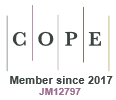Built structure identification in wildland fire decision support
David E. Calkin A D , Jon D. Rieck A B , Kevin D. Hyde C and Jeffrey D. Kaiden A BA USDA Forest Service, Rocky Mountain Research Station, PO Box 7669, Missoula, MT 59807, USA.
B University of Montana, College of Forestry and Conservation, PO Box 7669, Missoula, MT 59807, USA.
C Collins Consulting, PO Box 7669, Missoula, MT 59807, USA.
D Corresponding author. Email: decalkin@fs.fed.us
International Journal of Wildland Fire 20(1) 78-90 https://doi.org/10.1071/WF09137
Submitted: 25 November 2009 Accepted: 11 May 2010 Published: 14 February 2011
Abstract
Recent ex-urban development within the wildland interface has significantly increased the complexity and associated cost of federal wildland fire management in the United States. Rapid identification of built structures relative to probable fire spread can help to reduce that complexity and improve the performance of incident management teams. Approximate structure locations can be mapped as specific-point building cluster features using cadastral data records. This study assesses the accuracy and precision of building clusters relative to GPS structure locations and compares these results with area mapping of housing density using census-based products. We demonstrate that building clusters are reasonably accurate and precise approximations of structure locations and provide superior strategic information for wildland fire decision support compared with area density techniques. Real-time delivery of structure locations and other values-at-risk mapped relative to probable fire spread through the Wildland Fire Decision Support System Rapid Assessment of Values at Risk procedure supports development of wildland fire management strategies.
References
Beyer HL (2004) Hawth’s Tools for ArcGIS. Available at http://www.spatialecology.com/tools [Verified 17 March 2010]Calkin DE, Hyde KD, Gebert KM, Jones JG (2005) Comparing resource values at risk from wildfires with Forest Service fire suppression expenditures: examples from 2003 western Montana wildfire season. USDA Forest Service, Rocky Mountain Research Station, Research Note RMRS-RN-24WWW. (Fort Collins, CO) Available at http://www.fs.fed.us/rm/pubs/rmrs_rn024.pdf [Verified 28 October 2009]
Creative Research Systems (2010) Sample size calculator. (Petaluma, CA) Available at http://www.surveysystem.com/sscalc.htm [Verified 24 March 2010]
FGDC Cadastral Subcommittee (2008) ‘The Uses and Needs of Cadastral Data by Federal Agencies.’ (Federal Geographic Data Committee: Washington, DC)
Finney MA (2005) The challenge of quantitative risk analysis for wildland fire. Forest Ecology and Management 211, 97–108.
| The challenge of quantitative risk analysis for wildland fire.Crossref | GoogleScholarGoogle Scholar |
GAO (2009) Wildland fire management: Federal Agencies have taken important steps forward, but additional action is needed to address remaining challenges. Government Accountability Office, Report GAO-09-906T. (Washington, DC) Available at http://www.gao.gov/new.items/d09906t.pdf [Verified 28 October 2009]
Gude P, Rasker R, van den Noort J (2008) Potential for future development on fire-prone lands. Journal of Forestry 106, 198–205..
National Research Council (2007a) ‘National Land Parcel Data.’ (National Academies Press: Washington, DC)
National Research Council (2007b) ‘Successful Response Starts with a Map.’ (National Academies Press: Washington, DC)
Openshaw S (1984) ‘The Modifiable Areal Unit Problem.’ (Geo Books: Norwich, UK)
Radeloff VC, Hammer RB, Stewart SI, Fried JS, Holcomb SS, McKeefry JF (2005) The wildland–urban interface in the United States. Ecological Applications 15, 799–805.
| The wildland–urban interface in the United States.Crossref | GoogleScholarGoogle Scholar |
Stage D, Von Meyer N (2004) Parcel data and Hurricane Isabel: a case study. (Federal Geographic Data Committee Cadastral Subcommittee, Washington, DC) Available at http://www.nationalcad.org/data/documents/Hurricane%20Isabel%20Final.pdf [Verified 28 October 2009]
Stage D, Von Meyer N, Ader B (2005) ‘Parcel Data and Wildland Fire Management.’ (Federal Geographic Data Committee Cadastral Subcommittee: Washington, DC)
Stewart SI, Wilmer B, Hammer RB, Aplet GH, Hawbaker TJ, Miller C, Radeloff VC (2009) Wildland–urban interface maps vary with purpose and context. Journal of Forestry 107, 78–83..
Strategic Issues Panel on Large Fire Cost (2004) Large fire suppression costs: strategies for cost management. Available at http://www.forestsandrangelands.gov/reports/documents/2004/costmanagement.pdf [Verified 15 November 2007]
Tchoukanski I (2009) ET GeoWizards. (ET Spatial Techniques: Pretoria, South Africa) Available at http://www.ian-ko.com/ [Verified 5 January 2011]
US Census Bureau (1994) ‘Geographic Areas Reference Manual, Ch. 11: Census Blocks and Block Groups.’ (United States Census Bureau: Washington, DC)
US Census Bureau (2001) ‘Census 2000 Summary File 1.’ (United States Census Bureau: Washington, DC) Available at http://www.census.gov/prod/cen2000/doc/sf1.pdf [Verified 21 October 2009]
US Census Bureau (2008) Gallatin County, Montana. US Census Bureau State & County QuickFacts. (Washington, DC) Available at http://quickfacts.census.gov/qfd/states/30/30031.html [Verified 28 October 2009]
USDA, USDI (2001) Urban–wildland interface communities within the vicinity of Federal lands that are at high risk from wildfire. USDA and USDI, Federal Register 66: 751–777. (Washington, DC) Available at http://www.gpoaccess.gov/fr/search.html [Verified 1 October 2009]
USDA OIG (2006) Audit report: forest service large fire suppression costs. USDA Office of Inspector General – Western Region, Report 08601-44-SF. (Washington, DC)
USFS (2009) Northern Region Geospatial Library. (Northern Region Office: Missoula, MT) Available at http://www.fs.fed.us/r1/gis/ [Verified 28 October 2009]
USGS (2008) The National Map: Structures. US Geological Survey. (Washington, DC) Available at http://nationalmap.gov/structures.html [Verified 16 September 2009]
USGS (2009) National Land Cover Database Multi-zone Download Site. United States Department of the Interior United States Geological Survey. Available at http://www.mrlc.gov/nlcd_multizone_map.php [Verified 28 October 2009]


